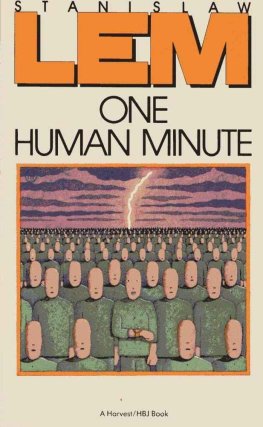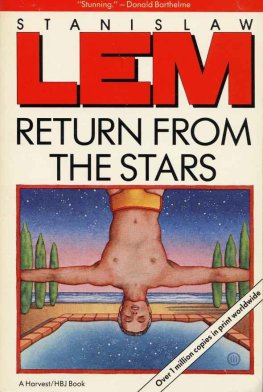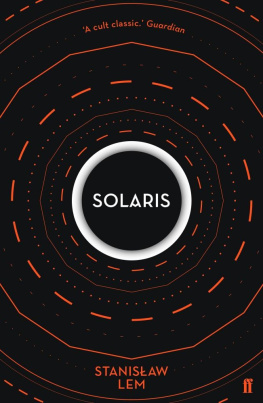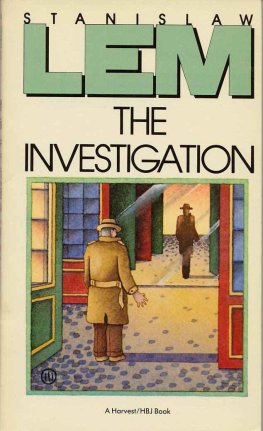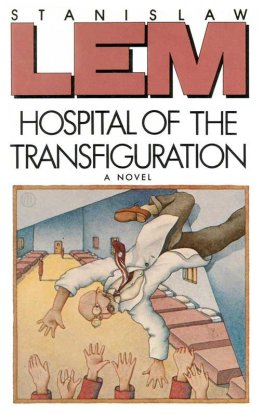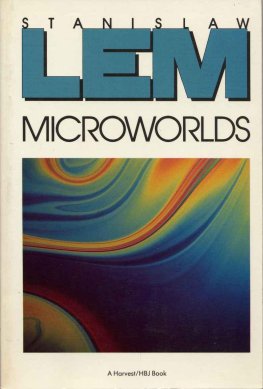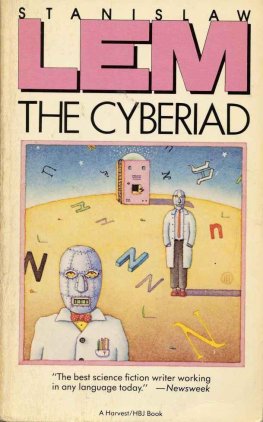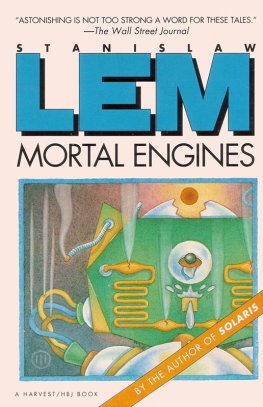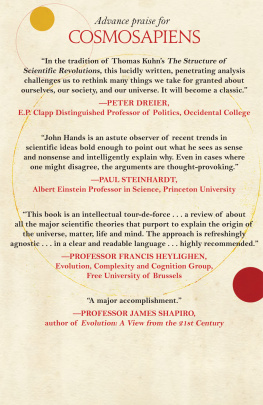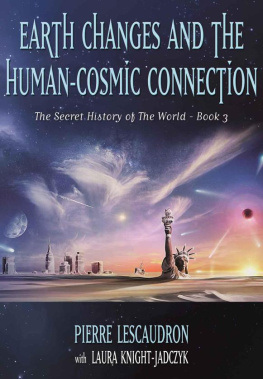Stanislaw Lem
ONE HUMAN MINUTE
This book presents what all the people in the world are doing, at the same time, in the course of one minute. So says the Introduction. That no one thought of it sooner is surprising. It was simply begging to be written after The First Three Minutes, The Cosmologists Second, and the Guinness Book of World Records, especially since they were best sellers (nothing excites publishers and authors today more than a book no one has to read but everyone needs to have). After those books, the idea was ready and waiting, lying in the street, needing only to be picked up. It would be interesting to know if J. Johnson and S. Johnson are man and wife, brothers, or just a pseudonym. I would like to see a photograph of these Johnsons. It is hard to explain why, but sometimes an authors appearance provides a key to a book. For me, at least, that has happened more than once. If a text is unconventional, reading it requires that one take a special approach. An authors face can then shed much light. My guess, though, is that the Johnsons do not exist, and that the S. in front of the second Johnson is an allusion to Samuel Johnson. But, then again, perhaps that is not important.
Publishers, as everyone knows, fear nothing so much as the publication of a book, since, according to Lems Law, No one reads; if someone does read, he doesnt understand; if he understands, he immediately forgets" owing to general lack of time, the oversupply of books, and the perfection of advertising. The ad as the New Utopia is currently a cult phenomenon. We watch the dreadful or boring things on television, because (as public-opinion research has shown) after the sight of prattling politicians, bloody corpses strewn about various parts of the globe for various reasons, and dramatizations in which one cannot tell what is going on because they are never-ending serials (not only do we forget what we read, we also forget what we see), the commercials are a blessed relief. Only in them does paradise still exist. There are beautiful women, handsome men all mature and happy children, and the elderly have intelligence in their eyes and generally wear glasses. To be kept in constant delight they need only pudding in a new container, lemonade made from real water, a foot antiperspirant, violet-scented toilet paper, or a kitchen cabinet about which nothing is extraordinary but the price. The joy in the eyes of the stylish beauty as she beholds a roll of toilet paper or opens a cupboard like a treasure chest is transmitted instantly to everyone. In that empathy there also may be envy and even a little irritation, because everyone knows he could never experience ecstasy by drinking that lemonade or using that toilet paper. Everyone knows that this Arcadia is inaccessible, but its glow is effective nevertheless.
Anyway, it was clear to me from the start that advertising, as it improves in the merchandising struggle for existence, will enslave us not through the better quality of the goods it promotes but as a result of the ever-worsening quality of the world. After the death of God, of high ideals, of honor, of altruism, what is left to us in our overcrowded cities, under acid rains, but the ecstasy of these men and women of the ads as they announce crackers, puddings, and spreads like the coming of the Heavenly Kingdom? Because advertising, with monstrous effectiveness, attributes perfection to everything and so to books, to every book a person is beguiled by twenty thousand Miss Universes at once and, unable to decide, lingers unfulfilled in amorous readiness like a sheep in a stupor. So it is with everything. Cable television, broadcasting forty programs at once, produces in the viewer the feeling that, since there are so many, others must be better than the one he has on, so he jumps from program to program like a flea on a hot stove, proof that technological progress produces new heights of frustration. Although no one said it in so many words, we were promised the world, everything if not to possess, at least to look at and touch. And literature (is it not but an echo of the world, its likeness and its commentary?) fell into the same trap. Why should I read about what particular individuals of different or the same sex say before going to bed, if there is no mention of the thousands of other, perhaps much more interesting people who do more imaginative things? There had to be a book, then, about what Everybody Else was doing, so that we would be tormented no longer by the doubt that we were reading nonsense while the Important Things were taking place Elsewhere.
The Guinness Book was a best seller because it presented nothing but exceptional things, with a guarantee of authenticity. This panopticon of records had, however, a serious drawback: it was soon obsolete. No sooner had some fellow eaten forty pounds of peaches complete with pits than another not only ate more, but died immediately after from a volvulus, which gave the new record a dismal piquancy. While it is untrue that there is no such thing as mental illness, that it was invented by psychiatrists to torment their patients and squeeze money out of them, it is true that normal people do far madder things than the insane. The difference is that the madman does what he does disinterestedly, whereas the normal person does it for fame, because fame can be converted into cash. Of course, some are satisfied with fame alone, so the matter is unclear. In any case, the still-surviving subspecies of intellectuals scorned this whole collection of records, and in polite society it was no distinction to remember how many miles someone on all fours could push a nutmeg with his nose painted lavender.
So a book had to be conceived that resembled the Guinness volume, was serious enough not to be dismissed with a shrug (like The First Three Minutes), but at the same time was not abstract, not loaded with theories about bosons and quarks. The writing of such a book an honest, uncontrived book about everything at once, a book that would overshadow all others seemed a total impossibility. Even I could not imagine the sort of book it would be. To the publishers I simply suggested writing a book that at worst would be the perfect antithesis of its advertising claims; but the idea did not take. Although the work I had in mind might have attracted readers, since the most important thing today is setting records, and the worlds worst novel would have been a record, it was quite possible that even if I had succeeded, no one would have noticed.
How sorry I am not to have hit upon the better idea that gave birth to One Human Minute. Apparently, the publisher does not even have a branch on the Moon; Moon Publishers, I am told, is only an advertising ploy. To avoid being called dishonest, the editor sent to the Moon, in a container on one of the Columbia shuttle flights, a copy of the manuscript and a small computer reader. If anyone challenged him, he could prove that part of the publishing operation actually did take place on the Moon, because the computer on the Mare Imbrium read the manuscript over and over. Perhaps it read without thinking, but that didnt matter: people in publishing houses on Earth generally read manuscripts the same way.
I should not have struck a satirical note at the beginning of my review, because there is nothing funny about this book. You may feel indignation; you may take it as an affront to the entire human race, aimed so skillfully that it is irrefutable, containing nothing but verified facts; you may console yourself that at least no one can possibly make a film or a television series out of it but it will definitely be worthwhile to think about it, though your conclusions will not be pleasant.
The book is unmistakably authentic and fantastic if, like me, you take fantastic to mean that which goes beyond the limit of our conceptions. Not everyone will agree with me, but I remain convinced that the poverty of todays fantasy and science fiction lies in the fact that there is too little of the fantastic in it, in contrast to the reality that surrounds us. Thus, for example, it turns out that a person with his brain cut in two (there have been many such operations, especially on epileptics) both is and is not one individual. It happens that such a person, who appears completely normal, cannot put on trousers, because his right hand pulls them up while his left lowers them; or that he will embrace his wife with one arm while pushing her away with the other. It has been shown that in certain cases the right hemisphere of the brain does not know what the left sees and thinks; so it had to be acknowledged that the splitting of consciousness and even of personality had been achieved, that, in other words, two people existed in one body. But other experiments showed no such thing not even that sometimes the individual would be single and sometimes double. The hypothesis that there were one and a half individuals, or two and something, also fell apart. This is no joke; the question of

